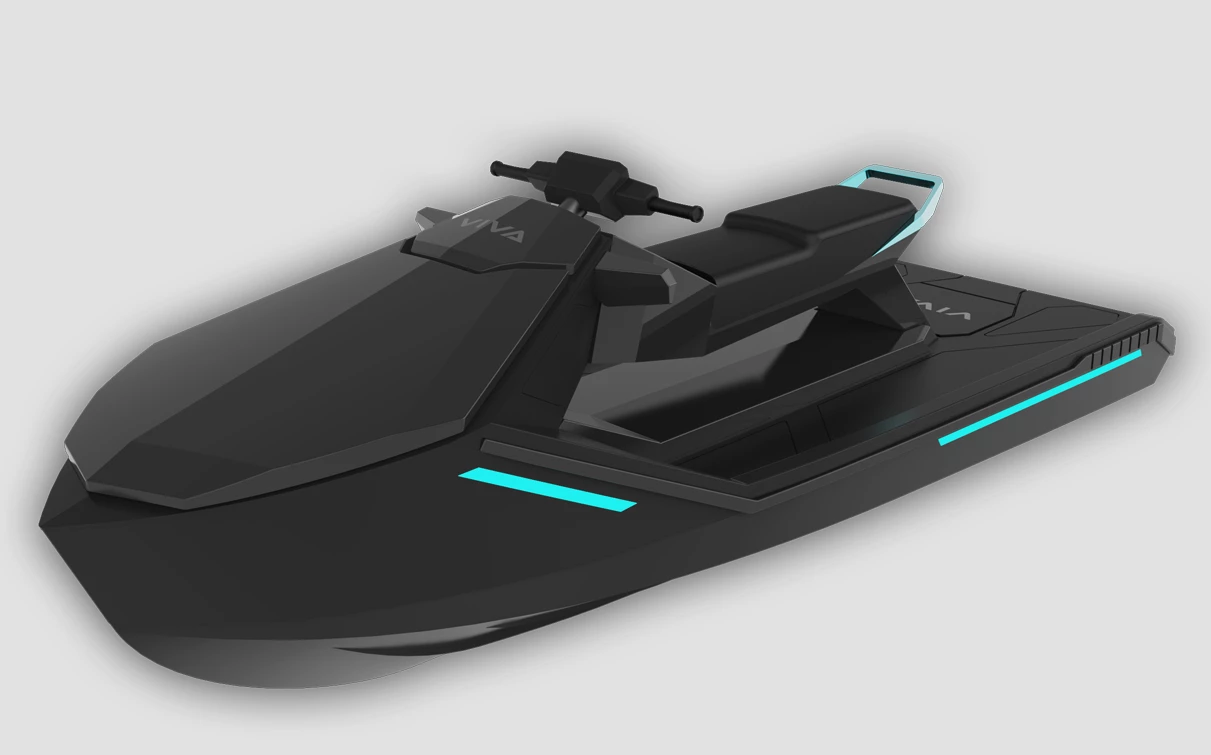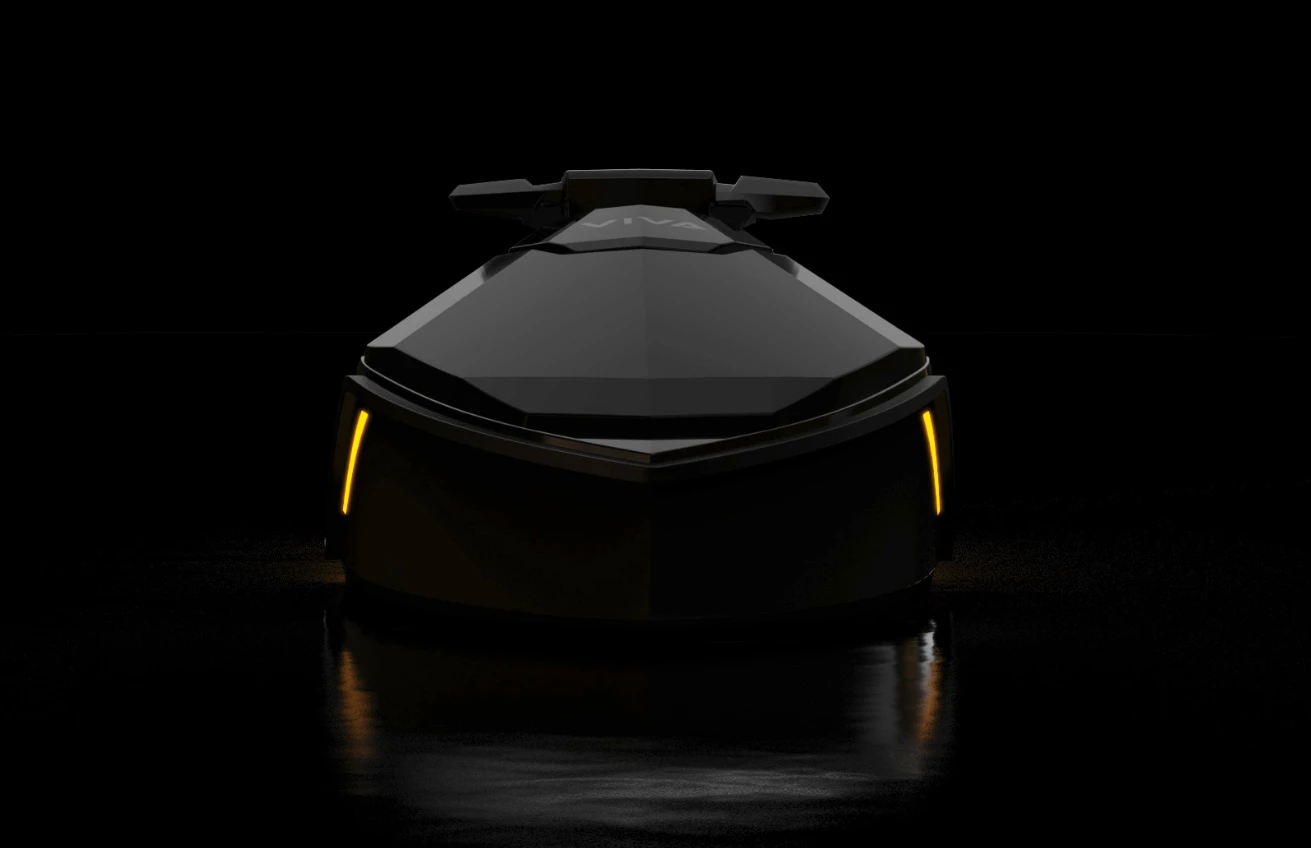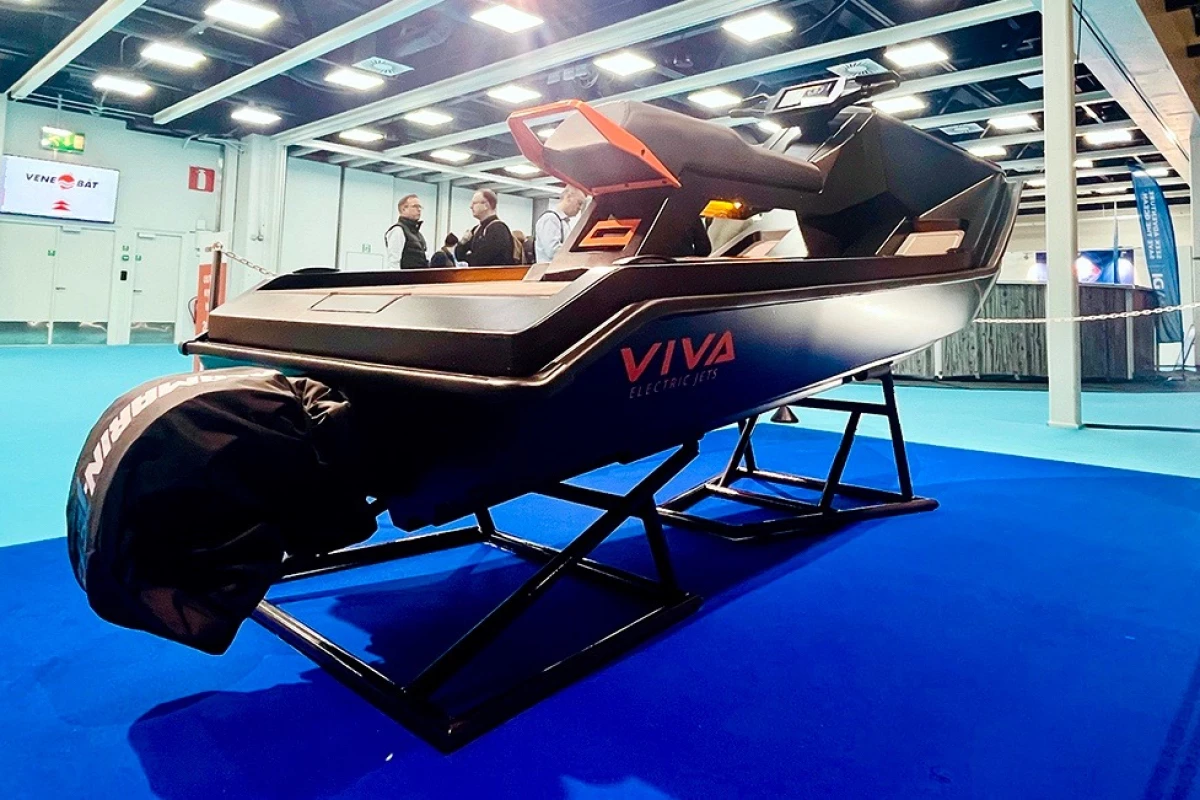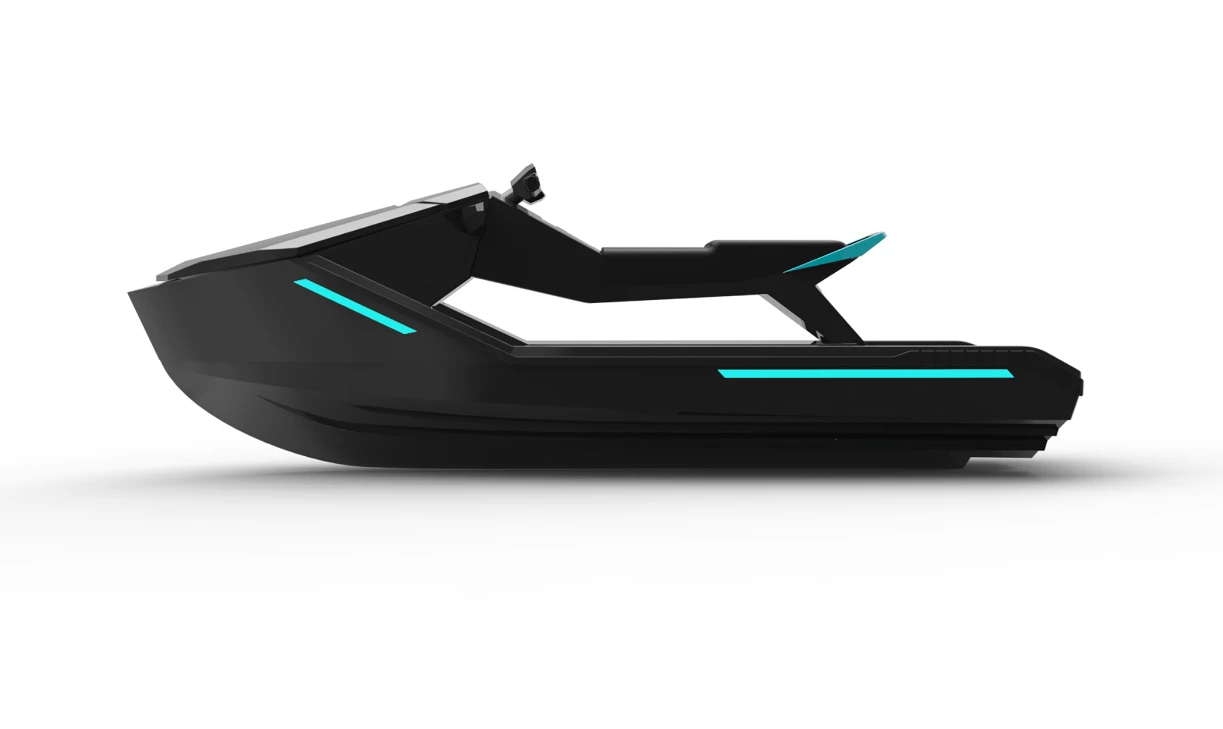A jet ski The Batman would ride – that's how Finnish startup Viva Electric Jets describes its debut product of the same name. It's not much of an exaggeration, either, as the unique angular styling does indeed look like something that could emerge from the Batcave ... at least if the Batcave were more of a sea cave, less of an underground lair. The electric new PWC promises speeds close to 60 mph (96.5 km/h) backed up by one-hour rapid charging that could help riders spend less of the day at the charger, more of it zipping across azure waters at highway pace.
After a quick sneak peek at last month's Düsseldorf Boat Show, Viva revealed its electric jet a little closer to home at this month's Helsinki boat show. While Batman won't necessarily be riding it anytime soon, the company promises a precisely tuned blend of exhilarating on-water ride with quiet, guilt-free zero-emissions footprint.
"Our team has tirelessly worked to develop a high-performance watercraft that combines thrilling speed, reliability, environmental consciousness, and unprecedented work space solutions," said Viva founder and CEO Timo Kronqvist at the Helsinki debut earlier this month.

The company says that the thrills part of the equation will be afforded by the vessel's speedboat-inspired design and new Almarin Jet propulsion system. That e-jet promises instant acceleration with up to 130 kW (174-hp) on tap for a top speed of 58 mph (93 km/h). The 27-kWh battery pack stockpiles enough juice for up to 31 miles (50 km) of range, and just as importantly does the critical 10 to 80 percent charging sprint in a mere hour when using a fast charger. With a standard home outlet, it takes a far more leisurely 20 hours.
Viva plans to launch its PWC in several different specs. The top-tier 970-lb (440-kg) GT model will be the lightest and fastest variant, combining carbon fiber hull construction with the 130-kW jet drive capable of 58 mph. The base-level Cruizer model pulls output back to 60 kW (80 hp) and floats on a fiberglass-composite hull that tacks on an extra 66 lb (30 kg). It's limited to a top speed around 40 mph (64 mph).

Both models offer the same 27-kWh battery pack, one-hour rapid charging and available 31-mile range when throttled back to "eco mode." They also share a 440-lb (200-kg) payload and 500 liters of waterproof storage in a front-accessed compartment. Viva has opened reservations for the €39,500 (approx. US$42,750) Cruizer with plans to begin the first deliveries in May 2024.
The Viva does outperform/underprice some electric jet skis we've looked at in the past, including the Narke GT95, but it falls short of what seems to be the nascent market's leader: the Taiga Orca. The Orca offers similar specs for less than half the price. It comes in base composite and high-performance carbon fiber models, both offering 120-kW (161-hp) jet drives and Level 3 fast-charging in as little as 40 minutes. The Orca Carbon tops out at 65 mph (105 km) and starts at $26,500, while the base Orca starts at $17,490.
That said, it's good to see more all-electric PWC options hitting waters around the world and cutting out the noise and emissions related to the traditional jet ski.
Source: Viva Electric Jets





